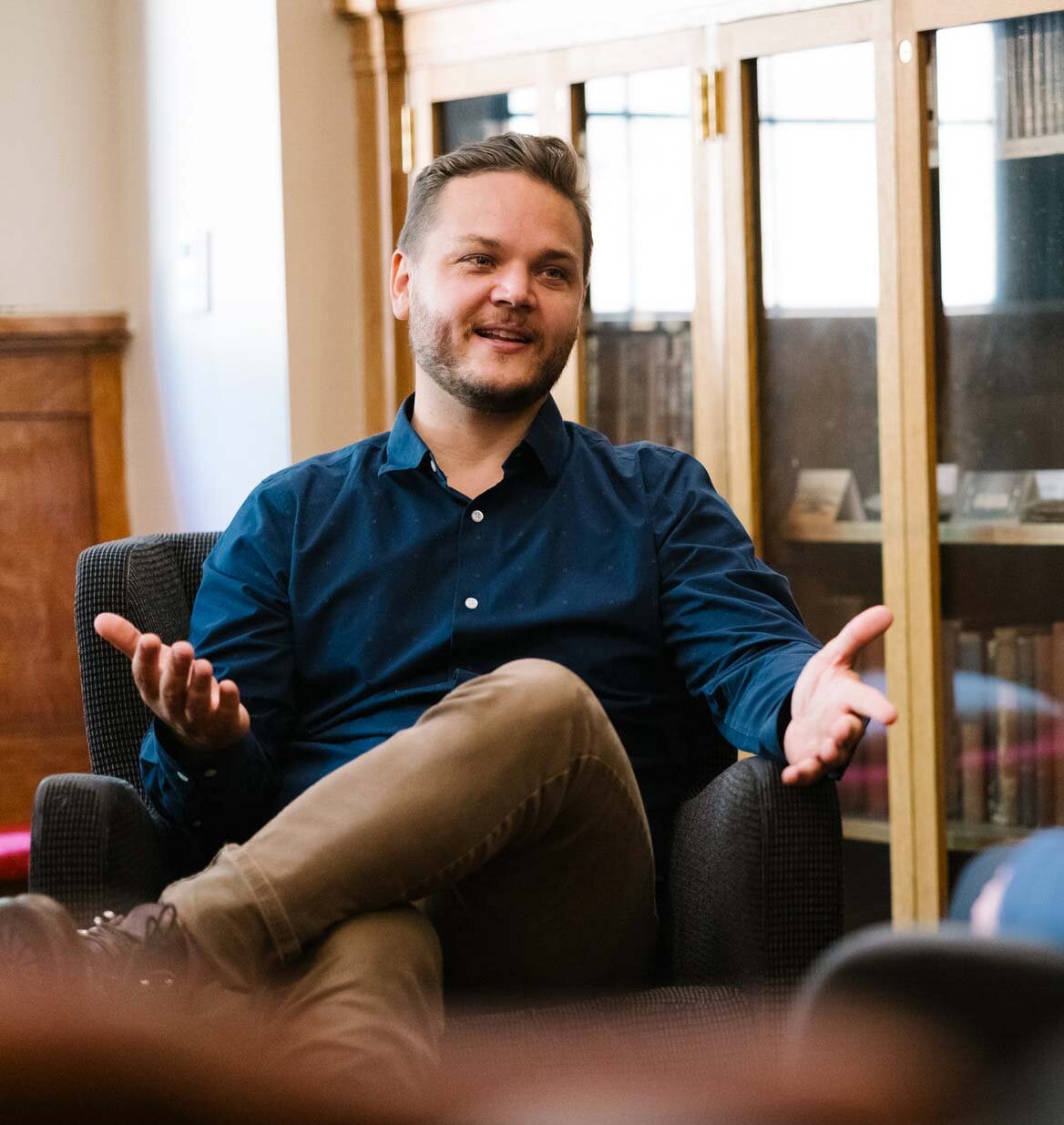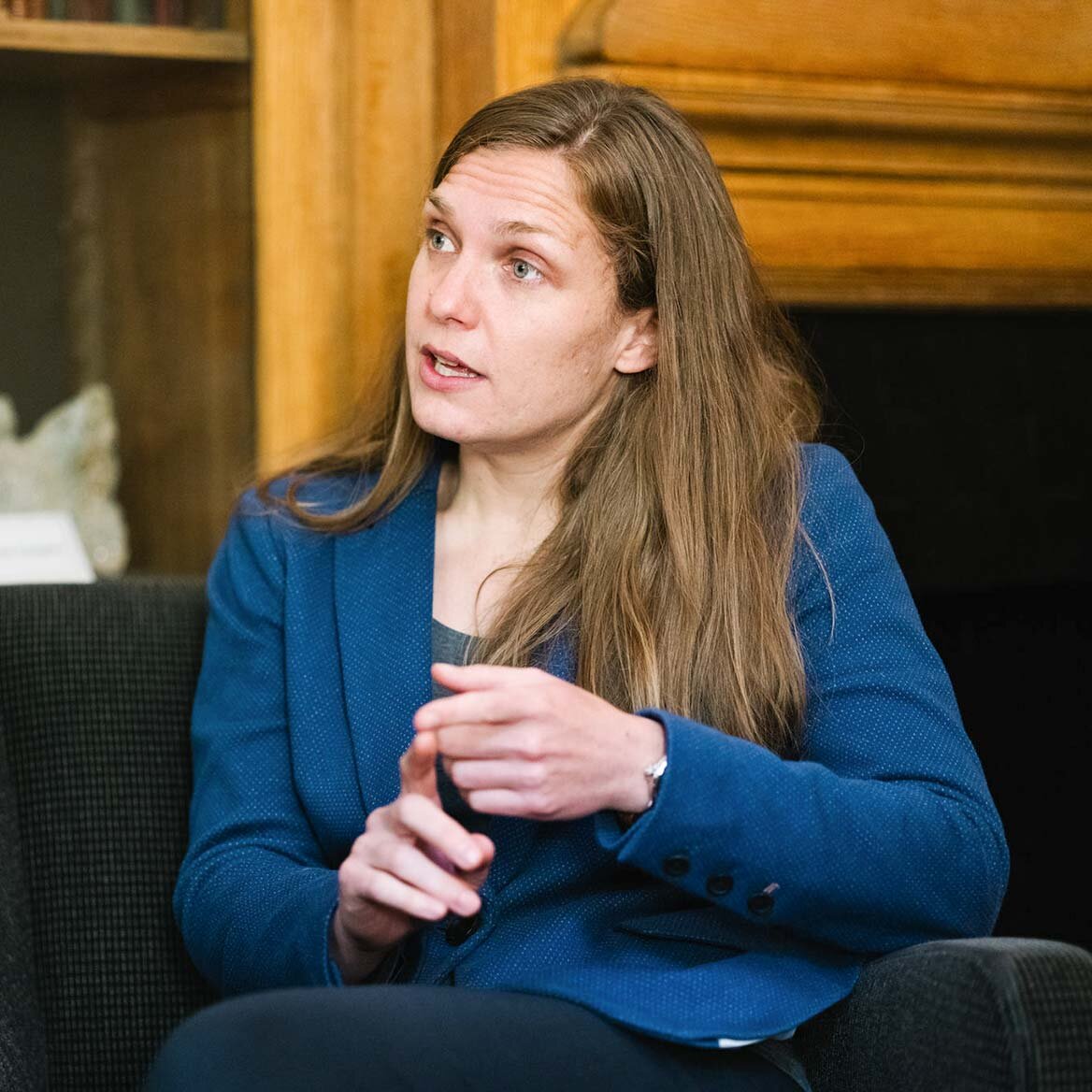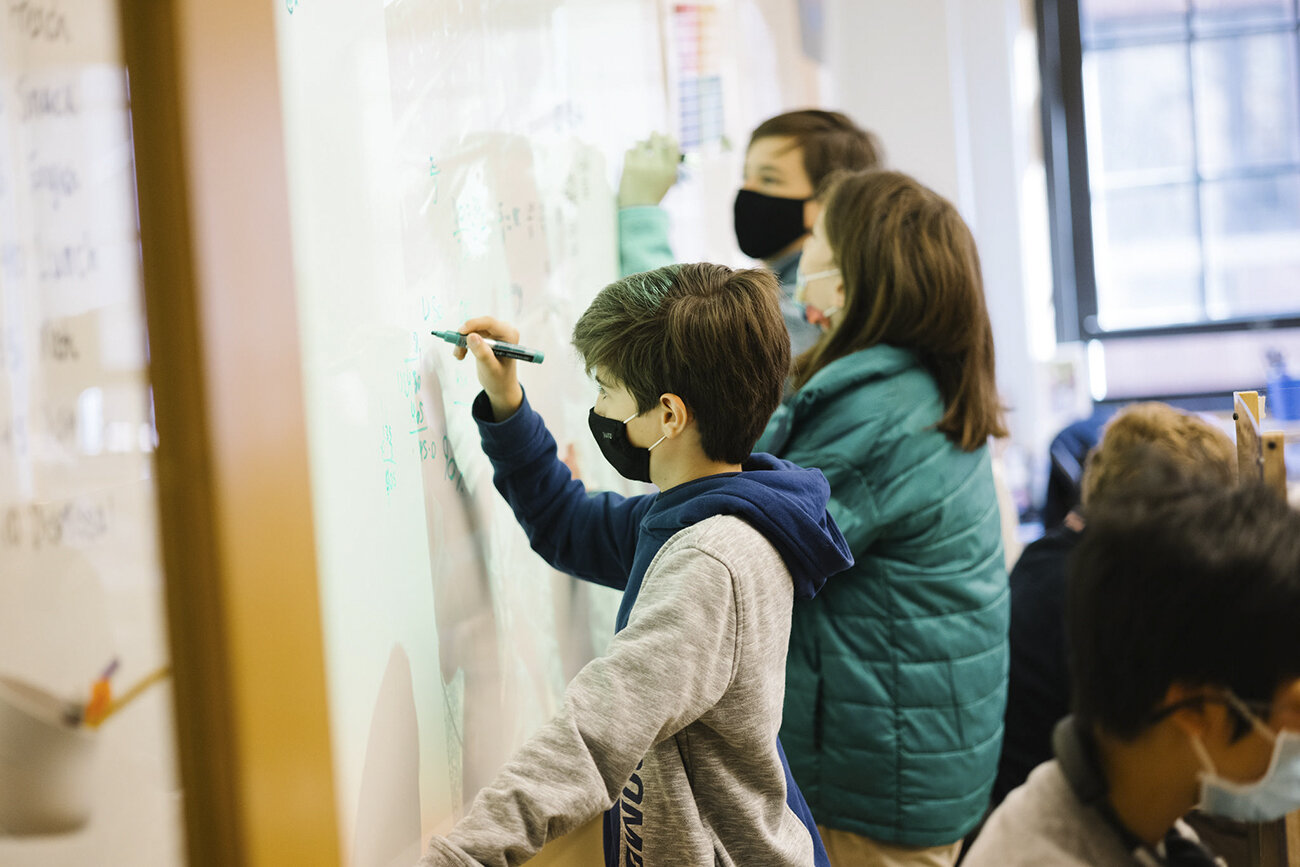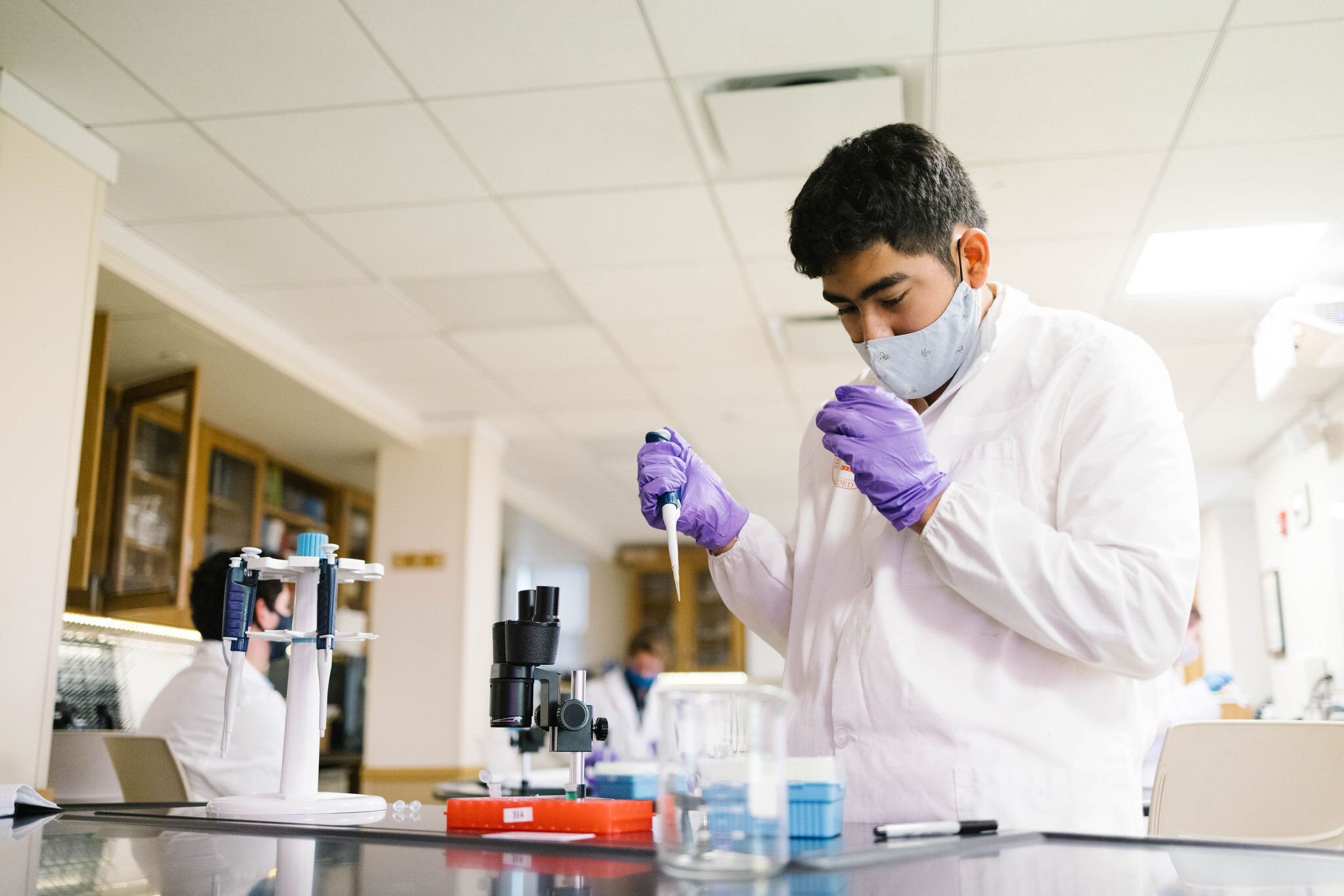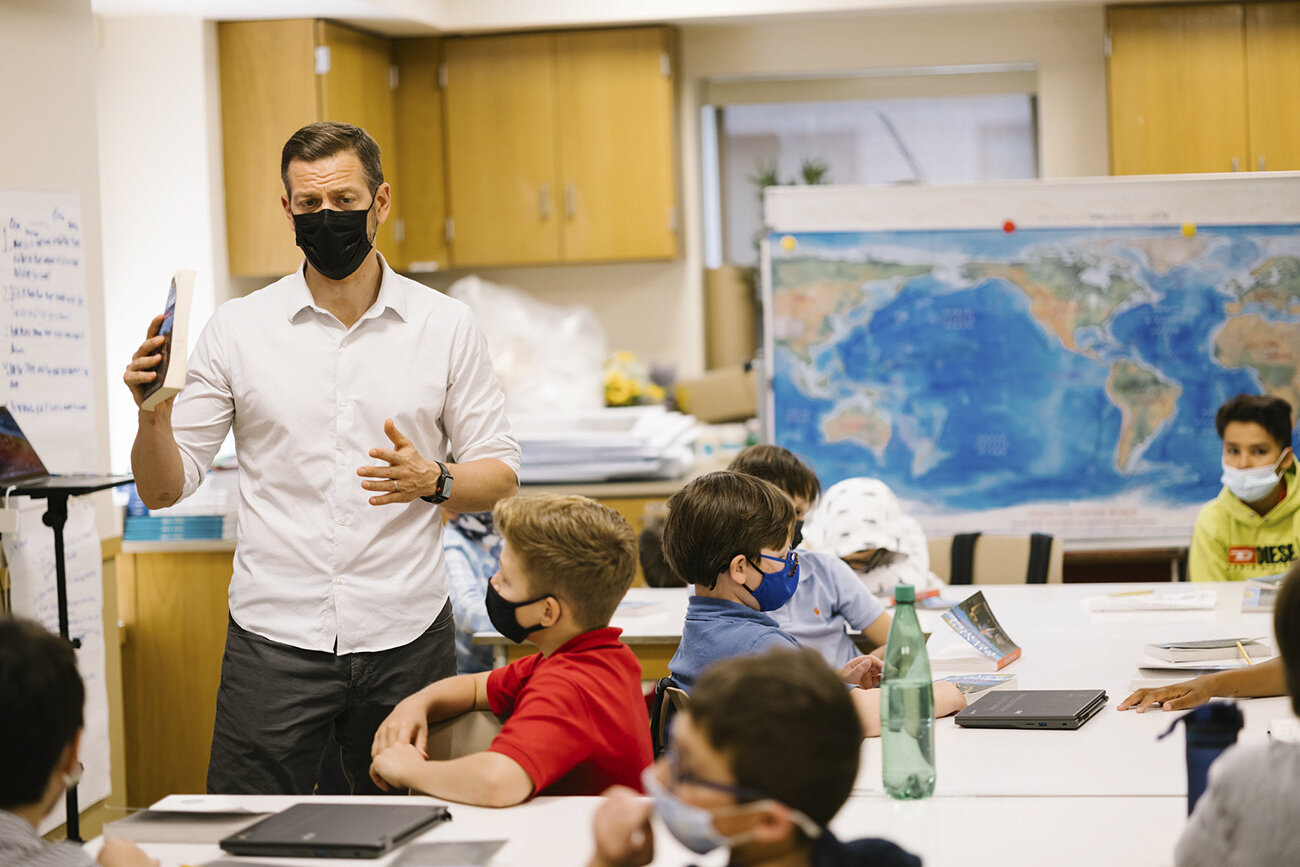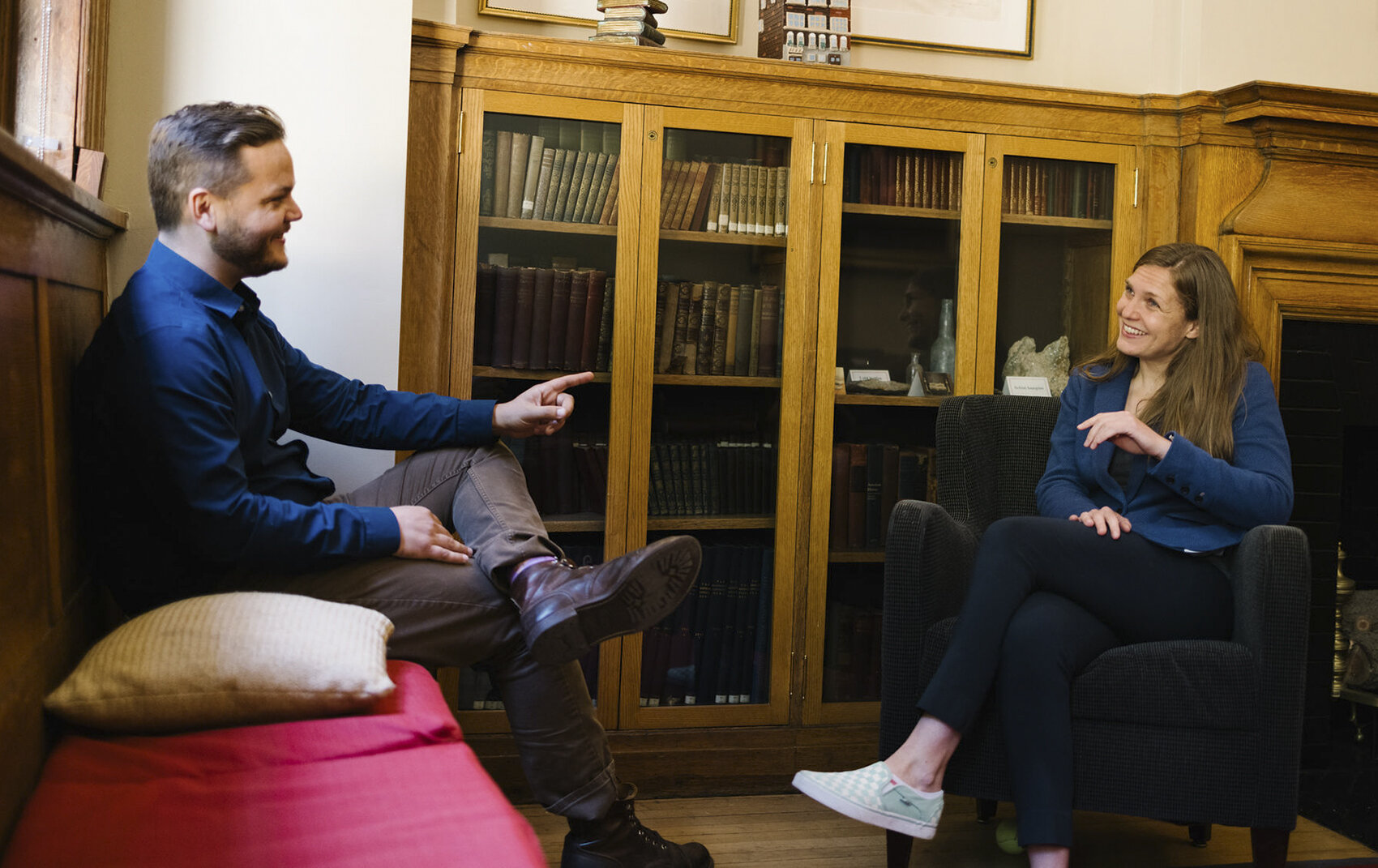Educating for the Future
While responding to the world today.
may 2021
The first two years of this decade provided that plans are no match for a world that is volatile, unpredictable, complex and ambiguous. And business leaders aren’t the only ones who have to think about “VUCA;” it has significant implications for teaching and learning. Browning colleagues Danielle Passno, incoming Assistant Head of School for Teaching and Learning, and Aaron Grill, Director of Program Innovation, discuss how it's also at the forefront of enhancing teaching and learning in a newly remade world.
Passno: Rather than just talking about the pandemic, let’s talk about the last 10 years. We now know far more about how the brain learns. We should be able to design better learning experiences because of that. So now we know there should be deeper focus on inquiry work and on having students able to ask good questions and answer them. Getting kids to master skills while understanding content is incredibly complex.
Grill: While there's great value in direct instruction and the quiz/test model, in the hybrid learning model it was very important that we named what students needed to learn in a more intentional way. So, teachers were implementing competency-based education and applying that with creative new assessments. Instead of pure recall they were looking more for synthesis and analysis.
Aaron Grill: "Adopting competency-based learning allows students to understand what success looks like rather than not fully understanding what their grade means."
Grill: Adopting competency-based learning allows students to understand what success looks like rather than not fully understanding what their grade means. If they have the rubric behind that grade, they see their strengths and weaknesses and learn exactly how to improve.
Passno: As we create articulated competencies for every discipline and every grade level from K through 12, we can provide crucial feedback to students and parents. They will be able to understand better the outcomes of the learning, which are the skills that a child can actively perform to show that he has understood a concept. We are collectively articulating competencies as a faculty now. It’s making information that has lived in the teachers’ heads explicit to students and families. When you have a competency-based learning model, you know exactly why a student received a certain grade, which is what families and boys want.
Grill: I think it’s important to say that competencies are different from “standards” which is a term people might be more familiar with when it comes to curriculum. There’s more flexibility with a smaller number of competencies, rather than creating 500 targets a student is supposed to hit in a year. As an independent school we want to honor the art of teaching, and our faculty can show more creativity in helping students reach more specific goals.
Danielle Passno: "Our focus on relationships and community building won't change. It doesn't matter what happens in the future, love has to be the number one thing that we communicate to students."
Passno: We put an incredible amount of energy and time into hiring well. There are lots of great academics who are subject matter experts but can’t translate that into learning for other people. If a student can’t take ownership of an educator’s expertise, they aren’t being educated. The bang for the buck on good hiring is amazing because now you’ve got a colleague who's a self learner, who's loving kids, and who's just constantly adding to the community. We want each Browning teacher to be a person who is striving to be a better teacher.
Grill: In terms of professional development, our Collaborative Learning Cohort, which teachers participate in each summer, demonstrates how well adults learn new things when they support each other as learners. Similarly, “Teaching and Learning with Boys,” which is for each year’s new faculty and more tenured partners, gives peers a great opportunity to reinforce the ways in which they can better educate boys.
Passno: All children are wired to learn, but learning well is very difficult. Growing in your teaching practice isn’t always easy. When there’s a structure where teachers can be immersed in learning at their own school, they can go farther, faster.
Passno: The importance of building self-worth and self-love in boys won’t change. The work of building purpose is never going to change. Our focus on relationships and community building won't change. It doesn't matter what happens in the future, love has to be the number one thing that we communicate to students.
Grill: What’s exciting is that teachers will be able to take some of the technology skills they’ve learned through the pandemic to create an atmosphere of social learning and collaboration. They’ll be able to differentiate learning more and have creative assessment at the end that measures a greater depth of knowledge. But teaching with love will always be the most important thing.

